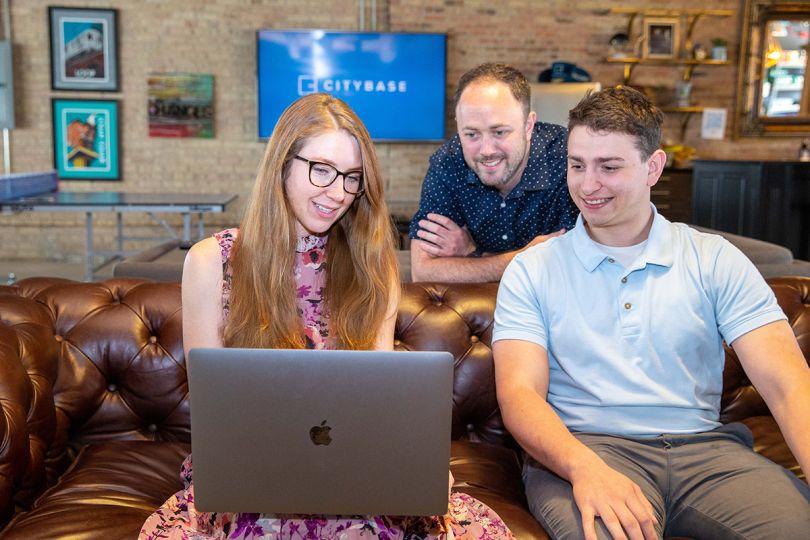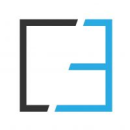The days of staffed tollbooths may feel like ancient history with the advent of the I-PASS and express plazas, but memories of “paying it forward” remain for many Chicagoans, who now may see the same phenomenon in a coffee shop or drive-through. The tradition of paying for the person behind you in line is more than a nice holiday tradition — it also serves as a symbolic model for a great mentorship program.
But where paying it forward falls short as a one-time, one-directional favor, the mentorship programs at SpotHero and CityBase provide opportunities for reciprocal, meaningful professional development and personal growth.
Ieshe Washington, senior engineering manager at SpotHero, sees their mentorship structure as an opportunity to pass on to her team what she has learned from mentors in the past.
“I’ve benefited from several mentors throughout my career and continue to learn from those relationships,” Washington told Built In Chicago. “I try to serve my team by being available, asking questions and being an active listener.”
Along with the individual benefits of a strong mentorship program like building expertise and growing a career, the resulting interpersonal relationships support a healthy and collaborative company culture.
“The mentorship culture galvanizes the team through the ritual of giving and sharing,” said David Rosen, engineering manager at CityBase. “Sometimes it’s easy to focus on the improvement in soft or hard skills, but part of what our dynamic engenders is good communication within and between teams, which pays dividends above and beyond the gain in skillsets.”
Built In Chicago spoke with Washington and Rosen about how their engineering teams continue to develop and pay opportunities forward to their colleagues.
SpotHero is a rapidly growing startup working on the future of urban transportation.
What’s a practice your team follows that encourages a culture of mentorship and knowledge-sharing among your team members?
One of SpotHero’s core values is “drive growth.” I believe this core value drives our culture of mentorship and knowledge-sharing amongst our teams. Two examples of this in action are our onboarding buddies and mentorship sessions. As new engineers onboard, they are given an onboarding buddy. This experience provides mentoring opportunities for the buddy while helping new engineers successfully get onboarded on our products, processes, tools and best practices, while meeting people from various teams.
In engineering, we developed a pair programming mentorship program in which mentees can either develop skills required to eventually transition into a new position or get cross-functional exposure, allowing them to discover new skills that give them broad understanding.
Our automation squad also holds weekly scripting sessions and office hours with quality assurance (QA) analysts and level 2 support to teach python and automation best practices. These weekly sessions exemplify collaboration through pair programming, while helping strengthen the programming and automation skills of the QA team, driving growth for each individual and the company.
How do you, as a leader, serve as a mentor to members of your team?
My main goal as a leader is to support my team and help them succeed. In doing so, I am able to help them and the company grow.
One-on-ones play an important role in mentoring my team as they set the foundation for understanding employee career goals and how I can support them. As an example, I supported a person on my team on their goal to be a manager by working with them on a learning plan to identify their strengths and opportunities for growth.
They worked diligently on that plan, and I supported them by identifying opportunities that used their strengths and challenged them to step out of their comfort zone. I nominated them for SpotHero’s leadership program, and we had bi-monthly mentorship sessions in which we covered general management topics, any questions they had and experiences that helped me grow into my role as a manager. They eventually were promoted to squad lead, then engineering manager. We continue to have one-on-ones where we share management experiences and learn from each other.
My main goal as a leader is to support my team and help them succeed.”
How has a mentorship culture helped your team grow?
As a result of the previously mentioned weekly scripting sessions, interest in the software development engineer in test (SDET) career path grew. Initially, the automation squad created a mentoring program to assist QA analysts’ growth into the SDET career path. Through the creation of a 90-day roadmap, establishing a cadence of one-on-ones between mentors and mentees and conducting mock interviews at the end of the mentorship program, we produce candidates that can make the transition to a different career path seamlessly. Our pilot was very successful in that one of our senior QA Analysts successfully worked through the program and transitioned to an SDET. This ensures that the team acquires a new addition who has already been trained in our processes.

CityBase is simplifying government and utilities services for providers and consumers.
What’s a practice your team follows that encourages a culture of mentorship and knowledge-sharing among your team members?
Mentoring is deeply ingrained in the CityBase culture, and it starts on day one. A newly hired engineer is paired with another team member to facilitate the onboarding process and answer general questions. We operate as a team on a daily basis, so it’s only fitting that onboarding is a team effort, too.
Over the long term, more senior team members offer technical mentorship to junior colleagues through pair programming and peer code reviews. Senior staff provide feedback on how to improve readability, extensibility and maintainability.
Mentorship also occurs outside of the team structure. For instance, one of our talented frontend engineers hosts office hours. Team members who have taken advantage of this opportunity include full-stack engineers from multiple teams, as well as people on our QA team. It’s a mutually beneficial relationship as more senior team members receive leadership opportunities and also enhance the technical skills of members honing their craft. It’s very gratifying to see it happening on a consistent basis.
How do you, as a leader, serve as a mentor to members of your team?
With a strong peer-based technical mentorship in place, I prefer to focus on areas like initiating and managing engineering-wide initiatives, developing effective presentations to sell an idea and defining a path toward longer-term career goals. I come with a different set of experiences, and integrating those with a team member’s background provides an alternate perspective when they work through challenges. Sometimes help takes the form of specific advice, sometimes it’s in questions about an end goal or approach and sometimes it’s in reinforcing their own conviction and communicating that I care about their priorities.
Recently, I played the role of an audience member for multiple trials before an actual presentation. Watching it, I gathered comments on areas which I felt could be strengthened, clarified or be made more concise. I believe I was most helpful when I could articulate the suggestion as a question, so the presenter had the head space to arrive at the conclusion themselves.
[Mentorship] creates a virtuous cycle, causing other engineers to stretch themselves and share as well.”
How has a mentorship culture helped your team grow?
The CityBase culture of mentorship both improves the quality of what we ship in the short term, and it also reinforces our core values of continuous improvement and lifelong learning. We have senior engineers who are actively improving their skills on technologies like Kubernetes and continuous integration and continuous delivery (CI/CD) automation and will readily share their new found knowledge. It creates a virtuous cycle, causing other engineers to stretch themselves and share as well.









